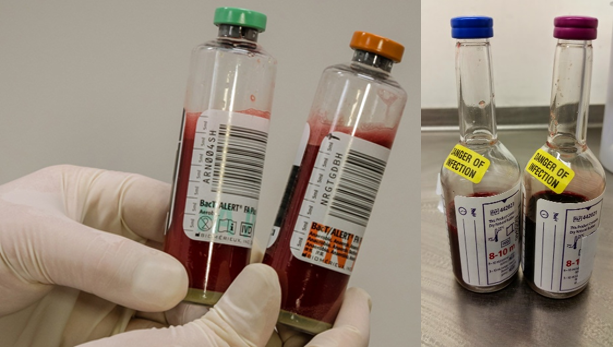Blood cultures obtained from central venous catheters (CVC) contain a significantly greater volume of blood than those obtained via peripheral venipuncture. This is the main finding from a study recently published by investigators at the University of Nebraska Medical Center (UNMC) (Jones RL, Syles HR, Fey PD and Rupp ME). “Effect of Clinical Variables on the Volume of Blood Collected for Blood Cultures in an Adult Patient Population”, Infection Control Hospital Epidemiology, 2017, available at: http://dx.doi.org/10.1017/ice.2017.230.
The study involved measuring the volume of blood collected on a representative population, extracting clinical data from the electronic medical record, and then performing linear model analysis to determine clinical variables that influenced volume recovery. Although the conclusion that CVC drawn blood cultures contain a greater volume may seem insignificant, it has profound implications for patient care. The sensitivity of blood cultures is highly volume dependent with a decreased yield of approximately 3-4% for each milliliter the blood culture is “shorted”. It was observed that CVC drawn blood cultures contained on average 2.5mL more blood than peripheral drawn cultures, which would equate to an 8.4% decrease in sensitivity – or missing approximately 220 bacteremic patients per year at our institution. Undoubtedly, this phenomena is active at other medical centers.
In addition, the difference in blood volume between CVC-drawn and peripheral-drawn cultures can also impact the ability to correctly diagnose CVC-associated blood stream infection if the “differential time to positivity” test is used to discern whether the CVC is the source of bacteremia.
The take home message- small variations in clinical practice can have a big effect on our diagnostic tests and our care of patients.
It should be noted that this important study was led by a UNMC medical student- Logan Jones, who is now pursuing Internal Medicine training at the Oregon Health Science Center. Congratulations to Logan on a job well done! We hope his interest in ID will continue to grow and who knows – maybe we’ll see him back for ID Fellowship.
Content courtesy Dr. Mark Rupp
